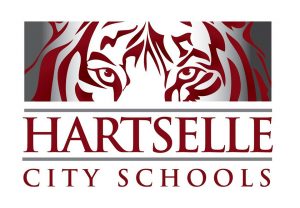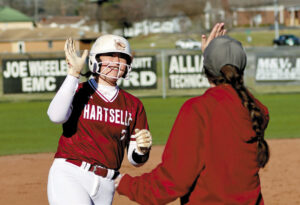The competitive spirit
Editor’s note: This is one in a series of articles marking the 50th Anniversary of Hartselle City Schools.
The March 21, 1991 issue of the Hartselle Enquirer featured an article entitled Competitive Spirit Drives School System. Having served Hartselle’s schools in many different roles, I can confirm that we are, indeed, a competitive bunch.
I was once attending a state meeting required of those overseeing curriculum and instruction for school districts, and I struck up a conversation with a gentleman from another school district whose responsibilities were similar to my own. He complimented Hartselle’s schools and was engaging me in a conversation about our teachers’ commitment to excellence. He was not looking for platitudes in response to his earnest inquiries; he was looking for strategies he could imitate in his own district.
And so, I was challenged to provide some very descriptive statements regarding Hartselle’s success, and these rose to the surface in that afternoon.
Hartselle City Schools values its people above its programs.
Some districts, through their choice or a necessity, work to purchase sweeping instructional programs and are convinced they can train their employees to follow a script in order to get the results they seek. Though new undertakings always come with a learning curve, Hartselle wants its employees to understand exactly why they are employing specific instructional strategies and what it is about those strategies that makes them suitable in varying situations. Reading an instructional script year after year with no understanding of how those scripted words impact learning does not result in excellence.
Hartselle’s teachers and leaders talk about teaching as it impacts learning. If there is no learning; there is no real teaching.
Hartselle distinguishes between teachers and tools. Tools such as technology are to be used by teachers to enhance learning. On their own, tools are not enough to ensure learning.
Telling is not teaching. Asking is not inquiring. Hearing is not listening. Replying is not responding. Interacting is not engaging. Recalling is not reflecting. As teachers gain classroom experience, they should be moving along a continuum of expertise. Hartselle expects this.
Hartselle’s teachers and schools do not compare themselves only to those within the county or in neighboring counties or within Alabama. Our Strategic Plan insists that we “lead the way on local, state, and national levels,” and that’s genuinely what we try to do. In his book Good to Great, Jim Collins asserted that the enemy of great is good. Hartselle believes this and works to steer away from complacency. Rattling off this list of five targets still doesn’t provide another school system with the “how,” and the “how” cannot be stumbled upon. District leaders, together with teachers and others, must design specific plans for improvement that specify the Who, How, With What, By When, and Where.
But at the foundation of all of this is an expectation of excellence that is in the lifeblood of this community and has tethered our schools to our families for generations. As a retired Hartselle educator, I cannot imagine accomplishing what I was able to accomplish in any city or county that did not have this expectation in its very bones. This piece more than any other named above is the secret of Hartselle’s success. It’s why we have been successful for 50 years. It’s why we fully expect to be successful in the next 50 years. It’s why, just as in 1991, a competitive spirit drives the school system.







